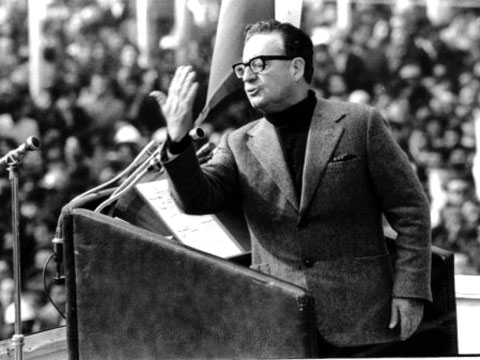latin america
Latin America, Cuba: Against the attack on the Syrian people, no more deaths and lies
Cuba: Statement of the Ministry of Foreign Affairs on Syria
Havana, August 28, 2013 – The Ministry of Foreign Affairs of the Republic of Cuba issued the following statement regarding the growing threats against Syria. The rece
'Não nos representam!' A left beyond the Workers Party?

Activists discuss plan for free transit at the occupied municipal chambers.
Brazil: The mass protests in June-July 2013

July 11: National Day of Struggle.

Publicity for the congress, which declares: “neither capitalists nor bureaucrats, all power to the working class”.
By Ewan Robertson, Mérida
June 24, 2013 -- Venezuelanalysis.com – Activists from across the Venezuelan labour movement met June 21-23, 2013, for the country’s first ever "workers’ congress", where workers discussed workplace democracy and the construction of socialism.
The congress, billed “First Workers’ Congress: Balance and Challenges of Worker Control and Workers’ Councils for the Construction of Socialism”, was organised by the National Worker Control Movement and saw the participation of more than fifty groups from factories across the country.
Political and union organisations were also present, including radical activists from the United Socialist Party of Venezuela (PSUV), the trade union current of the Communist Party (PCV) and representatives of leftist union confederation, the National Union of Workers (Unete).

Luiz Inacio Lula da Silva with Dilma Rousseff.
[For more on Brazil, click HERE.]
André Singer interviewed by Guilherme Evelin for Revista Epoca, translated for Links International Journal of Socialist Renewal by Federico Fuentes
June 23, 2013 -- André Singer, the person who developed the concept of “Lulism”, says that the recent street protests have opened up a long cycle of mobilisations that will force the government and the country to make some crucial decisions.



